Staff Excellence
New Deputy Director
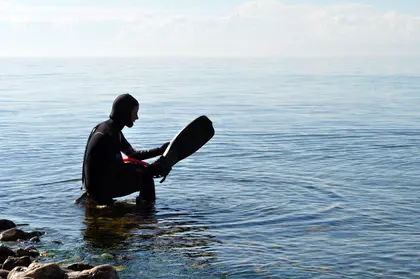
Aquatic ecologist Stephanie Hampton joined Carnegie as Deputy Director of Carnegie’s newly launched Division of Biosphere Sciences and Engineering. She arrived from the National Science Foundation, where she was the director of the Division of Environmental Biology. She was also a professor and the former director of an interdisciplinary environmental research center at Washington State University.
At Washington State, Hampton was part of a leadership team that oversaw the design, construction, and governance of a new research building to house the university’s Center for Environmental Research, Education, and Outreach, of which she was the director at the time. This background will be invaluable as Carnegie prepares to relocate its life and environmental science efforts to Pasadena where experts from a variety of fields will tear down disciplinary silos and tackle environmental, health, and energy system challenges at scales ranging from the molecular to the global.
Hampton’s own research focuses on the dynamic factors that shape aquatic ecosystems, with a focus on Lake Baikal in Siberia and the lakes of the Pacific Northwest. Her work has informed environmental conservation efforts and policymaking.
Prior to Washington State, Hampton served in several leadership roles at U.C. Santa Barbara, including deputy director of the National Center for Ecological Analysis & Synthesis, managing director of Science for Nature and People, and Interim Director of Community Engagement and Education for DataONE. She received her Ph.D. in ecology and evolution from Dartmouth College, a master’s degree in biology from University of Nevada Las Vegas, and a bachelor’s degree in biology from the University of Kansas Lawrence.
Honors & Awards
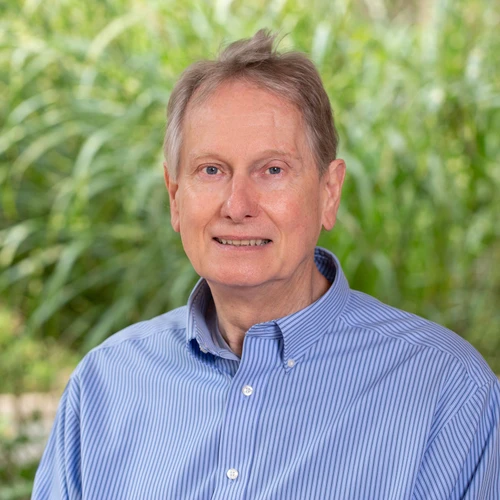
Carnegie’s Alan Boss was named one of 23 new Fellows of the American Astronomical Society. The honorees were chosen for their “extraordinary achievement and service” to the field. Boss, whose contributions to the fields of astronomy and astrophysics are numerous, was specifically recognized for “innovative theoretical investigations of the formation of stars and exoplanets” as well as “tireless leadership within the exoplanet exploration community in ensuring that NASA executes a credible and successful exoplanet program.”
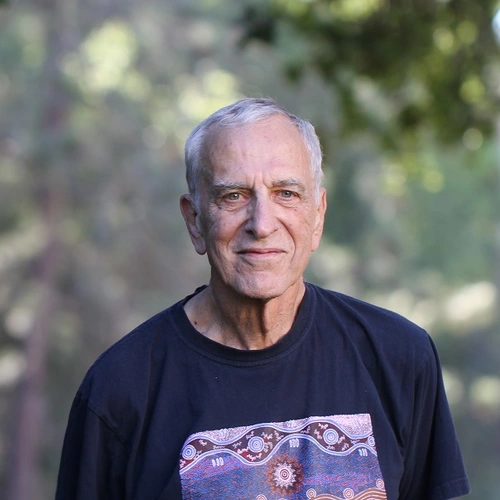
The American Association for the Advancement of Science (AAAS) has elected Carnegie ecologist Joseph Berry to the newest class of AAAS Fellows, among the most distinct honors within the scientific community and part of a tradition that started in 1874. Since joining the Institution in 1972, Berry has developed powerful tools to understand the exchange of carbon dioxide and water between plants and the atmosphere—a cycle that has shaped the Earth and made it possible for life as we know it to thrive. His models and methods are widely used to contextualize photosynthetic activity at local, regional, and global scales, and have important implications for agriculture and land management.
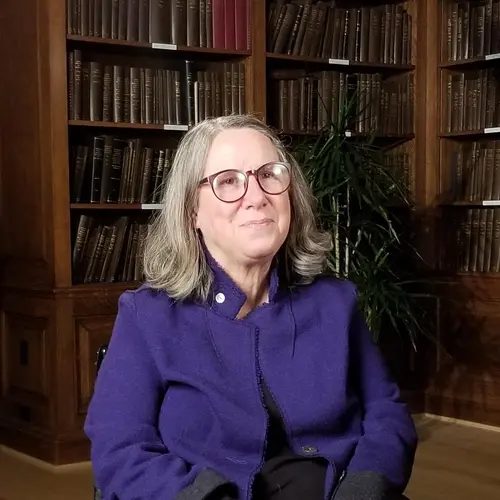
Isotope geochemist Marilyn Fogel, who spent 33 years as a Staff Scientist at Carnegie’s Earth and Planets Laboratory (formerly the Geophysical Lab)—has been chosen to receive the Geochemical Society’s highest honor, the Victor Moritz Goldschmidt Award, in recognition for her numerous and varied contributions to the field. “Marilyn has had a deep and lasting impact on important questions in Earth and planetary sciences. Her work at Carnegie echoes through our halls and will continue to do so for decades to come,” said Carnegie President Eric D. Isaacs.
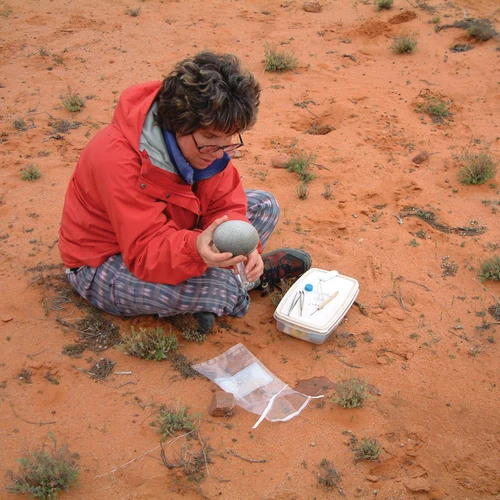
Isotope geochemist Marilyn Fogel was posthumously recognized with the American Geophysical Union’s Eunice Newton Foote Medal for Earth-Life Science, which is awarded annually to “an exceptional senior scientist for outstanding creative achievements in research at the intersection of Earth and life sciences.”
“The Foote Medal was created to highlight work being done that connects our understanding of the past, present and future of the Earth System, as well as the prospects for life on other worlds and the ‘future of human well-being,’” said Carnegie Earth and Planets Laboratory Director Michael Walter. “Marilyn’s research was impactful across every research area recognized by this prize.”
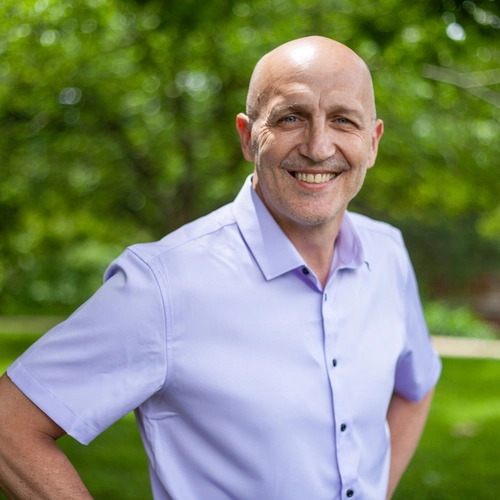
Earth and Planets Laboratory Director Michael Walter, an experimental petrologist who studies deep-Earth minerals and melts to elucidate the formation and evolution of our planet’s dynamic interior, was honored with the American Geophysical Union’s Norman L. Bowen Award at the organization’s annual Fall Meeting in December. The Bowen prize is the top recognition for a scientist in AGU’s Volcanology, Geochemistry, and Petrology section. It is presented each year to an individual who has made “outstanding contributions” to the field, either in the form of a single, groundbreaking paper, or a cumulative set of advancements over time.
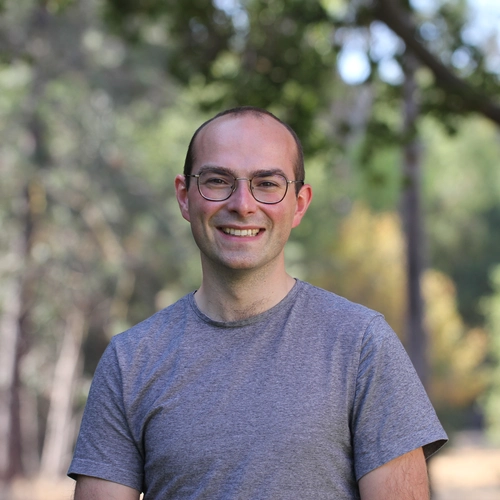
Carnegie algal physiologist Adrien Burlacot was selected for the 2023 class of Forbes’ 30 Under 30 North America list in science. Honorees were chosen for their “unconventional thinking,” Forbes said in its announcement of the new class, describing them as individuals “who have rewritten rules, reshaped industries, and are breaking ground towards a brighter future.” The recognition spotlights Burlacot’s efforts to fight world hunger and mitigate climate change by hacking the process plants use to convert the Sun’s energy into chemical energy in the form of sugars and fats.
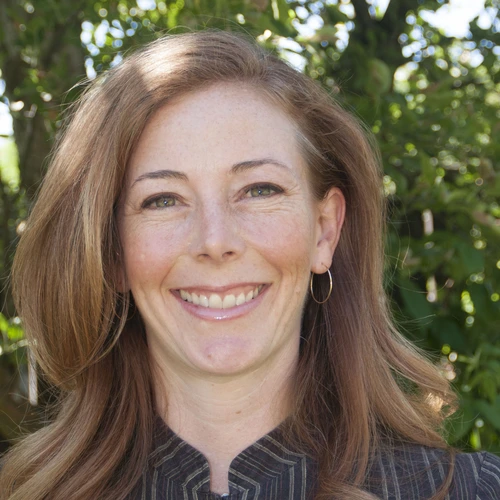
Deputy Director of Carnegie’s Biosphere Sciences and Engineering Division Stephanie Hampton, a freshwater ecologist whose work has informed both conservation efforts and policymaking, has been elected President of the Ecological Society of America (ESA), the world’s largest ecological professional society. She will serve a three-year term. A longtime member of ESA, Hampton’s service to the organization includes chairing the Aquatic Ecology section between 2011 and 2013, as well as membership on the Science Committee between 2013 and 2015, and Sustainability Science Committee between 2014 and 2015.
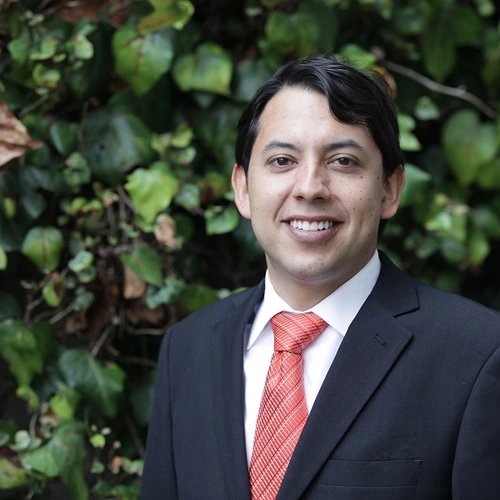
Carnegie postdoctoral researcher Edgar Virgüez was named one of four new trustees of Duke University. He will serve a three-year term. Virgüez joined the Carnegie Institution for Science’s Department of Global Ecology in February after completing his Ph.D. at Duke. He works with Carnegie’s Ken Caldeira on modeling climate and energy solutions.
“As a rising scholar and emerging higher education leader, my experiences at Carnegie this year—and the guidance offered by Ken—have expanded my scientific vision and shown me how to contribute to comprehensively addressing the most-pressing societal issues facing humanity today,” Virgüez added. “I will bring this knowledge to my work as a Duke trustee.”
Inaugural Carnegie DEI Mini-Grants Awarded
In an effort to advance diversity, equity, and inclusion work throughout the organization and our surrounding communities, Carnegie has awarded 10 projects with inaugural DEI mini-grants. The mini-grant program provides up to $5,000 to support DEI-related projects, ideas, or collaborations.
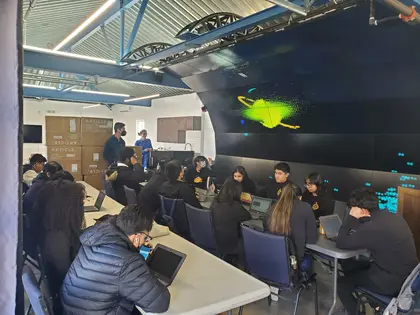
“The mini-grant program launched last fall and was designed to enable Carnegie faculty, postdocs, and staff to obtain funding for small-scale projects that help advance our local and institutional DEI goals,” said Associate Science Deputy Anat Shahar, who with Science Deputy and Observatories Director John Mulchaey oversees Carnegie’s DEI efforts.
Many of the grants focus on improving access to STEM programs and activities. Both Adrien Burlacot from the Department of Plant Biology and the Department of Global Ecology's Wu Sun received grants to support joint internships between the two Palo Alto-based departments and the Carnegie Academy for Science Education in Washington, D.C.. At the Observatories, Allison Matthews will use a grant to reach under-served Pasadena elementary school students with personalized, hands-on astronomy activity kits and at the Earth and Planets Laboratory (EPL) Johanna Teske will use a grant for computing support for undergraduate interns.
Several grants focus on the intersection of art and science. Plant Biology’s Selena Rice will expand the Plant Cell Atlas initiative's existing art exhibition partnership with HBCUs to showcase the work of historic Black plant researchers. Another Plant Biology program, run by Elena Lazarus, will advance an existing program to organize screenings of and panel discussions about science-related films. At the Observatories, Ethan Nadler will partner with Los Angeles-based arts education organization Create Now to make dark matter visualizations.
EPL’s Suzy Vitale and the Observatories Jeff Rich will both their grants for community outreach. Vitale will organize a Science in Your Backyard event for Washington, D.C., area science lovers and Rich will expand an existing program to bring local Pasadena students to the historic Mount Wilson Observatory.
The Observatories’ Gwen Rudie’s grant is also focused on strengthening community relationships, but with an inward gaze. Her project will facilitate lunchtime conversations and trust-building between different cohorts of employees on campus.
“This is a great batch of recipients, and we look forward to hearing their reflections as their projects progress,” Shahar concluded.
In Memorium
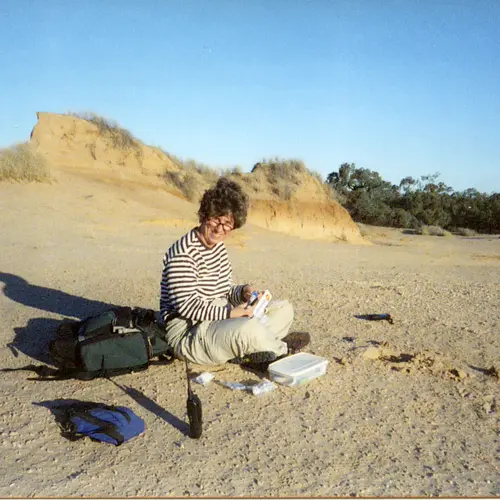
At the age of 69, Marilyn Louise Fogel, an isotope geochemist whose work touched on a broad scope of subjects ranging from astrobiology to paleoecology and climate change to human health, died May 13, 2022, after a prolonged battle with Amyotrophic Lateral Sclerosis (ALS).
Fogel spent 33 years as a Staff Scientist at Carnegie’s research campus in Washington D.C., at what is now the Institution’s Earth and Planets Laboratory, as well as a short stint as a visiting scholar at Carnegie’s Department of Plant Biology in California. She developed the use of stable isotopes to trace astrobiological, biogeochemical, and ecological processes, including the impact of climate variation on ancient ecosystems, species migration, diet, and organics found within meteoritic samples.
Her awards and accomplishments were many. They include Chair of the Life and Environmental Sciences Unit of the U.C. Merced School of Natural Sciences (2012); first woman selected for the Geochemical Society’s Alfred Treibs Medal (2013); Director of the EDGE (Environmental Dynamics & Geo-Ecology) Institute at U.C. Riverside (2016); received the Geochemical Society’s highest honor, the Victor Moritz Goldschmidt Award (2022). Additionally, she was a member of the National Academy of Sciences and a fellow of the American Association for the Advancement of Science and the American Geophysical Union.
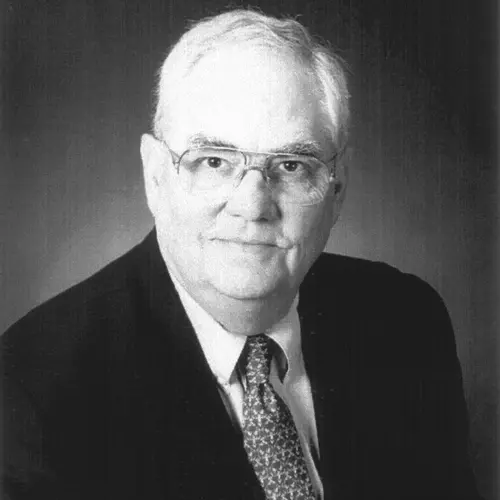
Former Trustee William Gayden died August 17, 2022. He was 81. Gayden joined Carnegie’s Board in 2002 and served on several key committees during his tenure.
Gayden was the founder, chairman, and chief executive officer of Merit Energy Company, a private firm specializing in direct investments in oil and gas assets. Prior to founding Merit Energy in 1989, Mr. Gayden was president of Petrus Oil Company and held many senior positions at Electronic Data Systems. Gayden began his career as a salesman with IBM.
During his time as a Carnegie trustee, Gayden’s generous support advanced multiple efforts, including the Giant Magellan Telescope, capital funds for several Carnegie buildings, and outreach efforts at the Observatories.
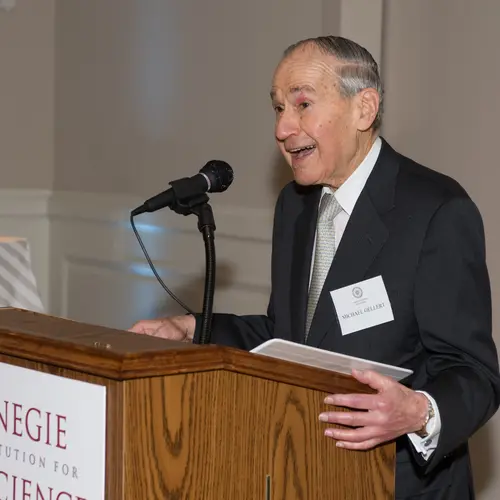
Michael Gellert, co-founder of investment vehicle Windcrest Partners who oversaw a decade of major institutional initiatives as the Chairman of Carnegie’s Board of Trustees, died August 17, 2021. He was 90.
Gellert joined the Board of Trustees in 1995 and was elected Chair in 2003. He served until 2018 after which he became an emeritus member.
He had a strong commitment to the life and environmental sciences which positioned Carnegie researchers to affect the national and international discourse around the greatest challenge facing humanity today—climate change and its impacts on Earth’s dynamic cycles and fragile ecosystems. Gellert also played a leading role in Carnegie’s founding commitment to the Giant Magellan Telescope, which is under construction at our Las Campanas Observatory in Chile. “Mike’s leadership was foundational to the creation of the GMT,” said President Emeritus Richard Meserve, whose tenure coincided with Gellert’s.
In 2000 he was recognized by the American Academy of Arts and Sciences, which elected him a Fellow. In 2015, he was awarded the Harvard Medal for his work on the Harvard Club of New York’s Board of Managers and other alumni affairs.
He is one of the largest donors in the Institution’s history, supporting many projects and initiatives that span the breadth of our research. “His role at Carnegie was never about himself,” concluded Suzanne Nora Johnson and Stephen Fodor, who succeeded Gellert as Co-Chairs of the Board. “It was always about advancing the good of the Institution and quality of the science inside the Institution.”
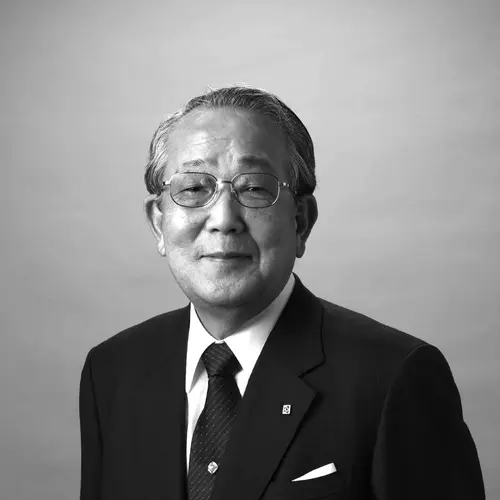
Trustee Emeritus and 2003 Carnegie Medal of Philanthropy laureate Kazuo Inamori died August 24, 2022, after an illustrious business career in his home nation of Japan. He was 90.
As the founder of industrial ceramics giant Kyocera and telecommunications company KDDI, Inamori was one of a small handful of industrialists who helped build post-war Japan into an economic success story.
Inamori joined Carnegie’s Board of Trustees in 1990 and served for 12 years before stepping down. He remained an emeritus trustee until his death.
“I was very impressed by the noble aim of your Institution, the advanced scientific works performed at your laboratories, and the personality and dedication of your board members and staff. I am honored you have asked me to join your distinguished Board of Trustees as a member,” Inamori wrote in his letter of acceptance. “I was especially touched by your intent in making your institution a global organization dedicated to benefit all mankind, and that you have selected me to be the first Japanese trustee on the board.”
In 1996, Inamori gave Carnegie $3.1 million to complete the first three Magellan Telescope instruments, which were installed four years later. In appreciation of his support, the Inamori Magellan Areal Camera and Spectrograph and The Magellan Inamori Kyocera Echelle Spectrograph were named in his honor.
Beyond Carnegie, Inamori’s philanthropic efforts created the prestigious Kyoto Prize. Supported by the Inamori Foundation, the award recognizes individuals and groups worldwide who have made outstanding contributions to the progress of science, technology, the advancement of civilization, and enrichment and elevation of the human spirit.
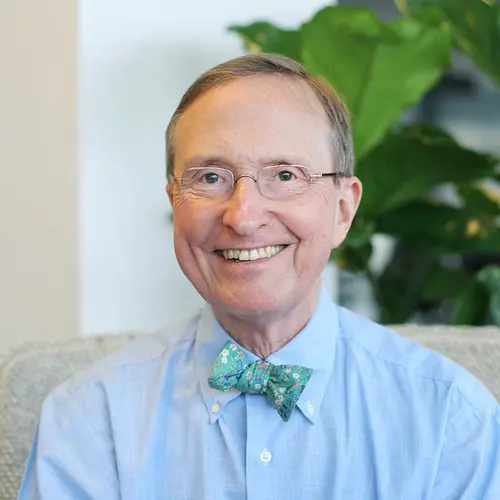
The founding chair of the Carnegie Scientific Advisory Council (CSAC), Thomas Lovejoy, a renowned ecologist and conservationist who is credited with coining the term “biological diversity," or "biodiversity,” died December 25, 2021. He was 80.
In 1978, Lovejoy conceived of the world’s largest and longest-running study of habitat fragmentation—the Biological Dynamics of Forest Fragments project—which has trained generations of conservation biologists and advocates and resulted in hundreds of scientific publications. Two years later, he published the first estimate of global extinction rates.
His many prestigious advisory roles included work for the Reagan, George H.W. Bush, and Clinton administrations and past chairmanship of the Scientific and Technical Panel for the Global Environment Facility. He also previously served as Senior Advisor to the President of the United Nations Foundation and Chief Biodiversity Advisor and Lead Specialist for the Environment for the Latin American region to the World Bank. He was also was the founder and past president of the Amazon Biodiversity Center and since 2010 he had been a professor of environmental science and policy at George Mason University.
Among many other notable achievements, he won the Tyler Prize for Environmental Achievement in 2001, the BBVA Foundation Frontiers of Knowledge Award in Ecology and Conservation in 2008, and the Blue Planet Prize in 2012
Biosphere Sciences & Engineering
Division Leadership, Staff Scientists & Staff Associates
Research Staff Member
Staff Associate
Research Staff Member
Research Staff Member
Staff Associate
Research Staff Member
Staff Associate
Research Staff Member
Director, Department of Global Ecology, Biosphere Sciences & Engineering
Staff Associate
Staff Associate
Research Staff Member
Research Staff Member
Research Staff Member
Research Staff Member
Research Staff Member
Biosphere Sciences & Engineering Deputy Director
Research Staff Member
Biosphere Sciences & Engineering Director
Research Staff Member
Acting Director, Department of Plant Biology, Biosphere Sciences & Engineering
Directory, Department of Embryology, Biosphere Sciences & Engineering
Earth & Planets Laboratory
Division Leadership & Staff Scientists
Research Staff Member
Research Staff Member
Research Staff Member
Research Staff Member
Research Staff Member
Research Staff Member
Research Staff Member
Research Staff Member
Research Staff Member, Carnegie Science Deputy for Research Advancement
Research Staff Member
Research Staff Member
Research Staff Member
Research Staff Member
Research Staff Member
Research Staff Member
Research Staff Member
Research Staff Member
Research Staff Member
Research Staff Member
Research Staff Member
Research Staff Member
Research Staff Member
Research Staff Member
Research Staff Member
Research Staff Member
Research Staff Member
Director
Observatories
Division Leadership, Staff Scientists & Staff Associates
Research Staff Member
Research Staff Member
Director, Las Campanas Observatory
Founding Director, Carnegie Theoretical Astrophysics Center
Research Staff Member
Research Staff Member
Research Staff Member
Research Staff Member
Research Staff Member
Associate Director for Strategic Initiatives
Research Staff Member, Giant Magellan Telescope Chief Scientist
Associate Director for Technological Affairs
Staff Associate
Research Staff Member
Director, Carnegie Science Deputy for Science
Associate Director, Las Campanas Observatory
Research Staff Member
Research Staff Member
Research Staff Member